28+ Sample Infant Schedules
-
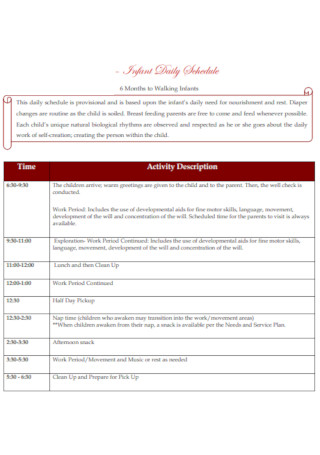
Infant Daily Work Schedule
download now -
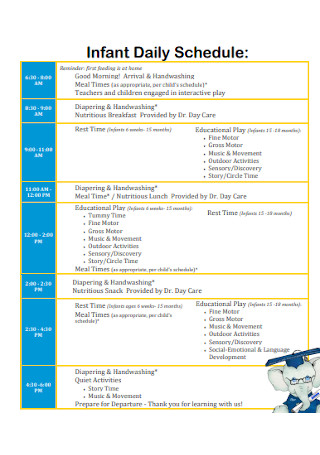
Infant Daily Schedule
download now -
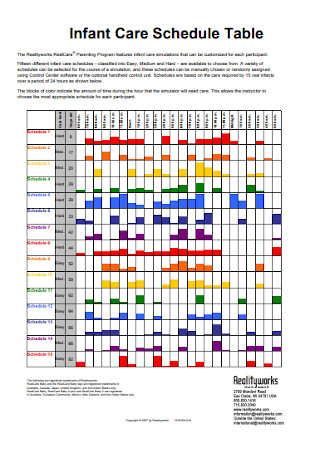
Infant Care Schedule Template
download now -
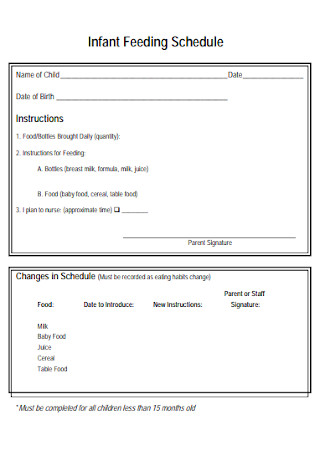
Infant Feeding Schedule
download now -
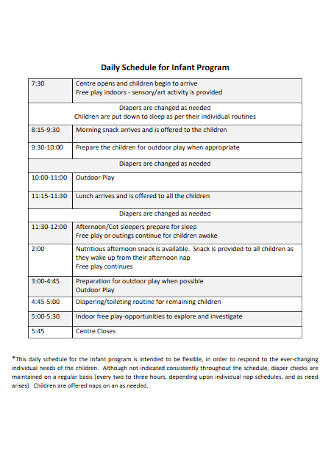
Daily Schedule for Infant Program
download now -
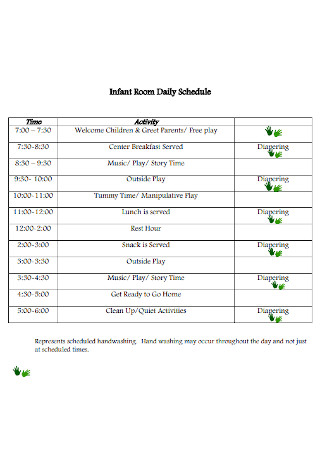
Infant Room Daily Schedule
download now -
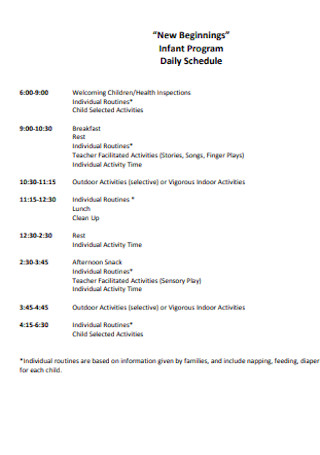
Infant Program Daily Schedule
download now -
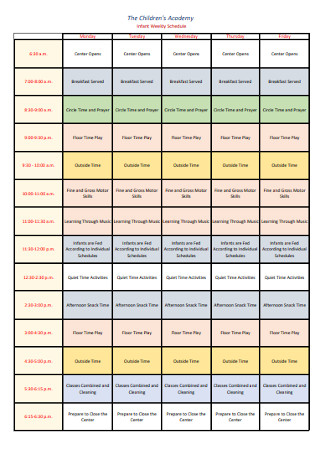
Infant Weekly Schedule
download now -
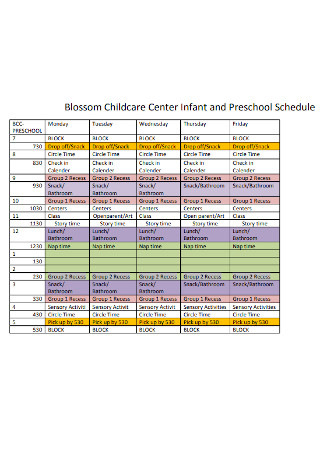
Infant and Preschool Schedule
download now -
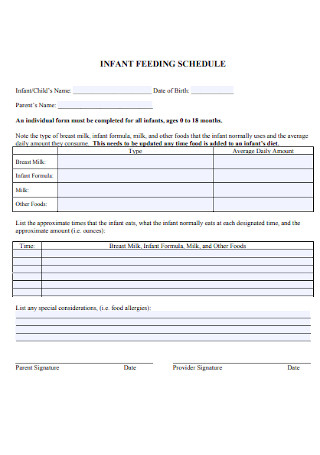
Infant Feeding Schedule Example
download now 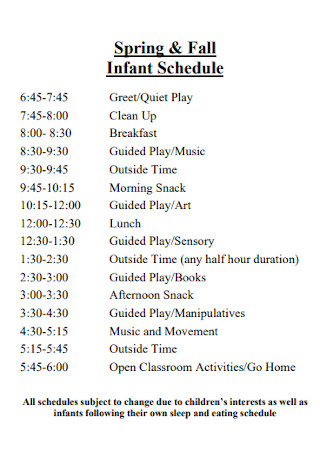
Fall Infant Schedule
download now-
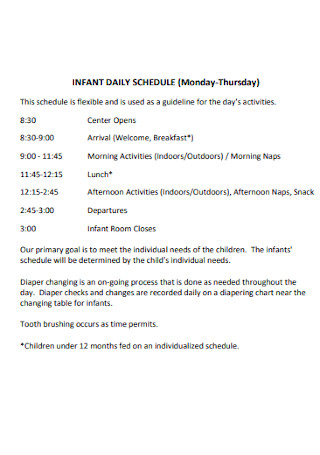
Infant Daily Schedule Template
download now -
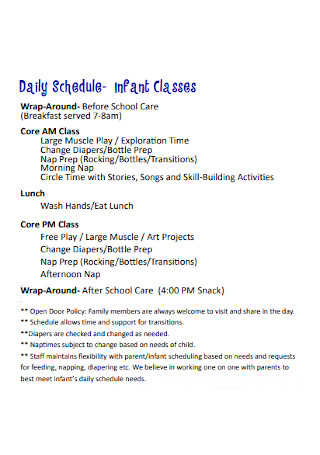
Infant Daily Classes Schedule
download now -
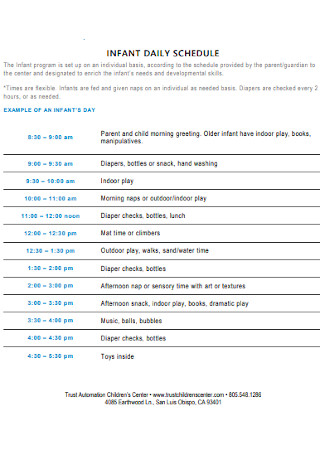
Children Infant Daily Schedule
download now -
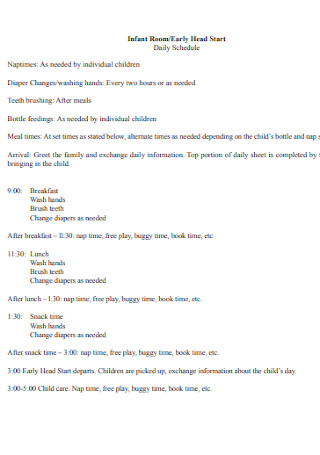
Infant Room Schedule
download now -
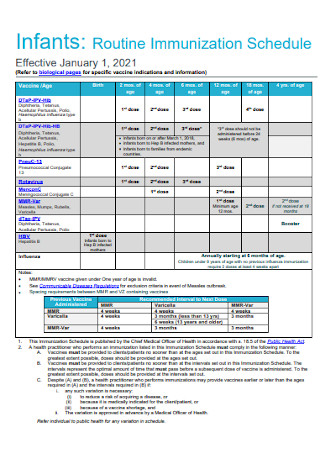
Infant Immunization Schedule
download now -
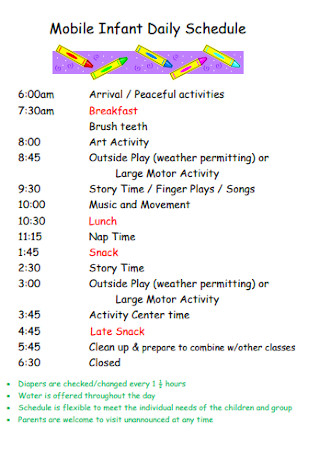
Mobile Infant Daily Schedule
download now -
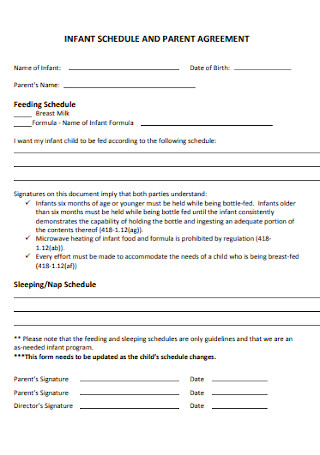
Infacnt Schedule and Agreement Template
download now -
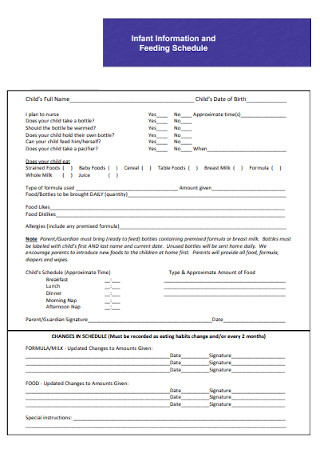
Infant Information and Feeding Schedule
download now -
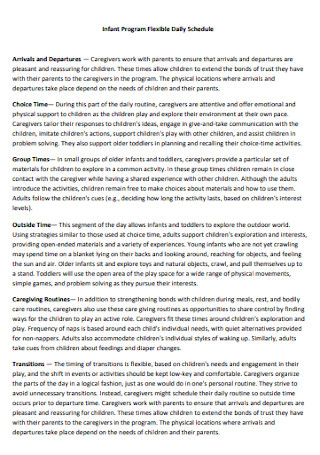
Infant Program Flexible Daily Schedule
download now -
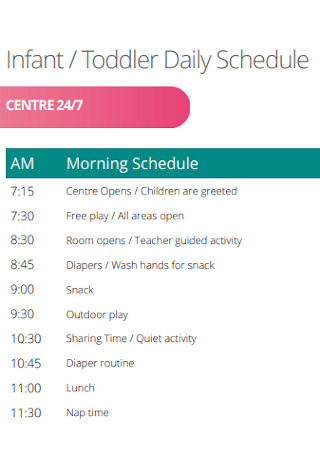
Infant and Toddler Daily Schedule
download now -
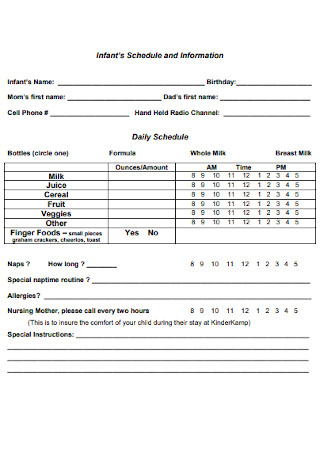
Infant Schedule and Information Template
download now -
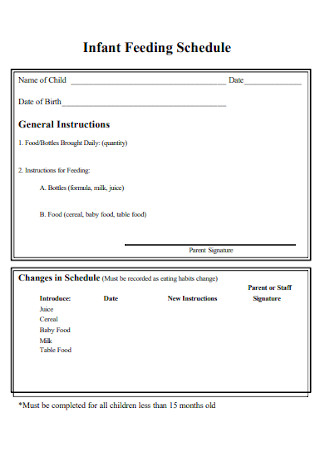
Infant Feeding Schedule Form
download now -
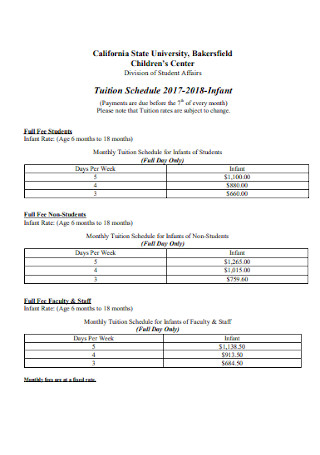
Infant Tuition Schedule
download now -
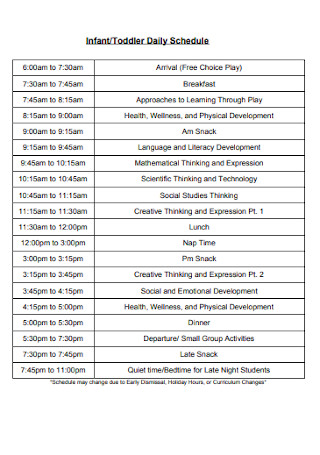
Infant Toddler Daily Schedule.
download now -
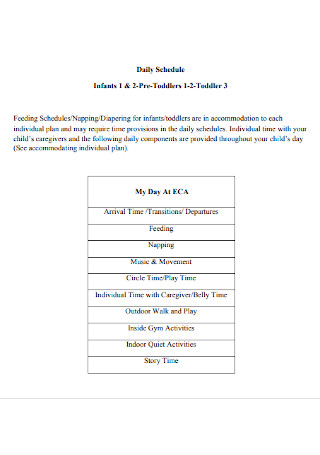
Pre Daily Schedule Template
download now -
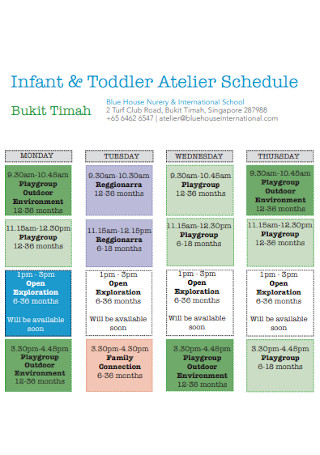
Toddler Atelier Schedule
download now -
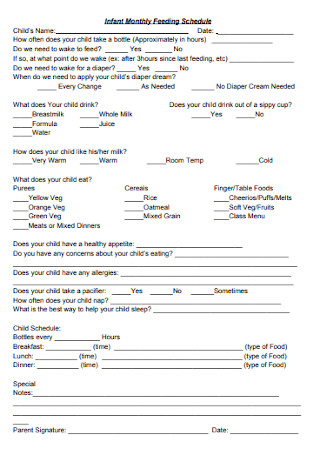
Infant Monthly Feeding Schedule
download now -
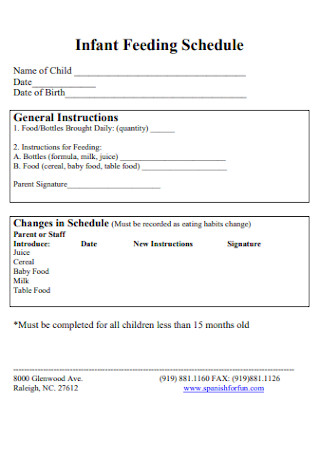
Infant Feeding Schedule Format
download now
What Is an Infant Schedule?
An infant schedule is a planned program or timetable that outlines and dictates the daily or weekly activities of a newborn baby. The schedule is typically prepared by the infant’s primary caregiver.
According to an article by Kids Health, the National Sleep Foundation says that newborns need to have at least 14-17 hours of sleep in a 24-hour window. Some babies may even have a total of 19 hours of sleep a day.
Fundamental Infant Activities
A newborn baby does not do much compared to a toddler or a school-age child. But it is an infant’s first few months and years of life that are the most crucial. The following are the most basic and fundamental activities that should be incorporated into any infant schedule.
Tips for Caring for an Infant
Parents and child caregivers have the important job of looking after the needs of a newborn baby. Especially for new and first-time parents, it can seem overwhelming at first. But with the right support and habits in place, caring for an infant can be a positive, fulfilling, and life-changing experience.
How to Create an Infant Schedule
Every infant schedule should be tailored to the individual needs of a newborn. So before you craft your schedule, make sure to assess the needs of your baby first or better yet, consult the child’s pediatrician if you are unsure. Once you’ve done this, follow the step-by-step instruction guide below.
Step 1: Choose a Template
To make your task easier, use a time-saving and ready-made template. This way, you do not have to start from scratch and you can create an infant schedule within minutes! There are dozens of available templates online; the infant schedule templates above are just some examples. You can choose a design that suits your tastes and preferences. The great thing about templates is that you get to customize it your way without having to start from the beginning. Of course, you also have the option to create your own personalized schedule if you want to design it yourself. Either way, it helps to decide on a format first before you craft a schedule.
Step 2: Identify the Infant’s Needs
Since it is an infant schedule, you need to have a good grasp of your baby’s basic needs and necessities. Every baby is different, but their basic needs are essentially the same. They need to be fed, bathed, clothed, and put to sleep preferably in a routine manner. Your infant schedule basically revolves around their needs. A baby is completely defenseless and helpless in its first few months of life; it is the duty of the parents as the primary caregivers to provide for their needs. From changing diapers to washing baby bottles to nap time, these must all be taken into account when crafting an infant schedule.
Step 3: Create a Timetable
After identifying the baby’s needs, the next step is to establish a timetable. Arrange and order the infant schedule based on the child’s meal time, sleep time, bath time, etc. It is possible to have a rotation schedule on select days, but as argued in the previous section, it might be best to stick to a routine in this case. And if you’ve chosen a template, you can simply edit the time slots. From the time the newborn baby wakes up all the way to the evening preparations for sleep, make sure to specify the time in your schedule. You also have the option to create either a daily or weekly schedule. But for infants, it is recommended to have a daily schedule to serve as a guide for parents, nannies, baby sitters, etc.
Step 4: Include Other Important Reminders
The last step is optional but it doesn’t hurt to list down important reminders. Whether it is milk formula measurements, emergency contact numbers, or even links to helpful baby websites, you can add it to your infant schedule. You can dedicate a special section under your timetable labeled Notes or Important Reminders. List important reminders in bullet points or numbers to make it more organized. Lastly, your schedule does not need to be plain or dull. You can design and decorate your infant schedule with images, graphics, and borders as well.
FAQ
When should you start a schedule for a newborn?
You can start as early as two months old as you gradually adjust to your newborn baby’s sleep schedule.
What should my baby’s schedule be?
A pattern for nighttime sleep usually emerges when the baby is, on average, six months old; and sleep, bath, and meal time are important components of a baby’s schedule.
How much do newborn babies sleep?
Newborn babies can have anywhere between 12-15 hours of sleep on average, while some can even reach a total of 18 hours of sleep.
Create an infant schedule that’s tailor fit to your baby’s needs. Browse the wide selection of free and printable templates above, edit it accordingly, and customize your own infant schedule today!
